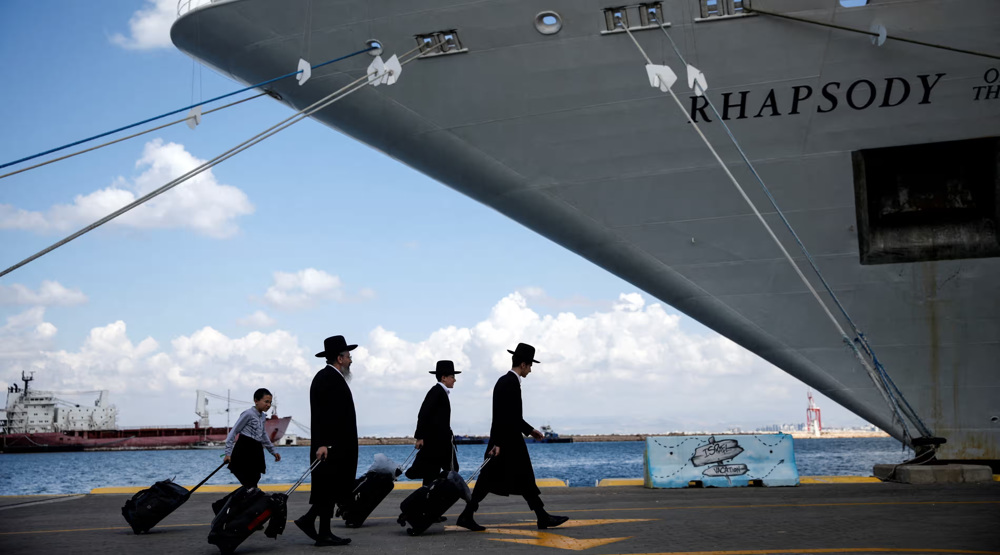Italy, Germany temporarily close embassies in Yemen
Italy and Germany have temporarily closed their embassies in Yemen, following the United States, Britain and France, in reaction to alleged security concerns after the Ansarullah revolutionaries took control of the capital, Sana’a.
On Friday, the Italian Foreign Ministry issued a statement, saying the country’s ambassador and staff are returning home from Italy's embassy in Yemen.
The ministry further expressed hope that through mediation of the UN special envoy to Sana’a, Jamal Benomar, security would be restored to Yemen in order to pave the way for the reopening of its embassy in Sana’a.
In the same vein, Germany’s ambassador and its diplomatic staff in Sana’a left Yemen on Friday.
On Wednesday, the French embassy in Yemen said in a statement that it will be closed from Friday until further notice, calling on all French nationals to leave the country due to “recent political developments and security reasons.”
The personnel of the British embassy as well as the ambassador left the Yemeni capital early on Wednesday, UK Government Minister at the Foreign and Commonwealth Office Tobias Elwood said.
“The security situation in Yemen has continued to deteriorate over recent days. Regrettably we now judge that our Embassy staff and premises are at increased risk," Elwood said in a statement posted on the embassy's website, adding, “We have therefore decided to withdraw diplomatic staff and temporarily suspend the operations of the British Embassy in Sana’a.”
In a similar move the same day, the US closed its embassy in Yemen, citing security concerns.

“On February 11, 2015, due to the deteriorating security situation in Sana’a, the Department of State suspended embassy operations and US embassy Sana’a American staff were relocated out of the country,” a State Department travel warning said, adding, “All consular services, routine and/or emergency, have been suspended until further notice.”
US officials, who spoke on condition of anonymity because they were not authorized to discuss the issue publicly, said on Tuesday that Washington might request the Turkish or Algerian embassies in Sana’a to represent American interests in the country.
Over the past months, al-Qaeda militants have frequently carried out attacks on Yemen’s security forces. The militants have been also engaged in battles with the Ansarullah revolutionaries of the Houthi movement.
Last week, the Houthi movement dissolved the parliament, following weeks of clashes with government forces.
Ansarullah announced a constitutional declaration on the Transitional National Council, which is expected to replace the country’s parliament.
In September 2014, Ansarullah fighters gained control of Sana’a, following a four-day battle with army forces loyal to General Ali Mohsen al-Ahmar, the half-brother of the country’s former dictator, Ali Abdullah Saleh.
The Ansarullah revolutionaries say the Yemeni government has been incapable of properly running the affairs of the country and providing security. Before gaining control of the capital, Ansarullah had set a deadline for the political parties to put aside differences and fill the power vacuum, but the deadline was missed without any change in the political scene of the country.
IA/KA/SS
UNRWA warns of humanitarian collapse in Gaza
'Hello my enemies': Lebanese journalist on Israeli threats and his resolve to continue
Outrage in France as MP proposes bill to ban criticism of Israel
VIDEO | The strategy of Hezbollah in war
Israeli military withdraws several brigades from southern Lebanon: Report
48-year-old Palestinian man serving 48 life terms completes 22 years in Israeli jails
From MKO to Tondar, how Germany became safe haven for anti-Iran terror groups
Hamas open to any proposal aiming to end Gaza war: Hamdan










 This makes it easy to access the Press TV website
This makes it easy to access the Press TV website